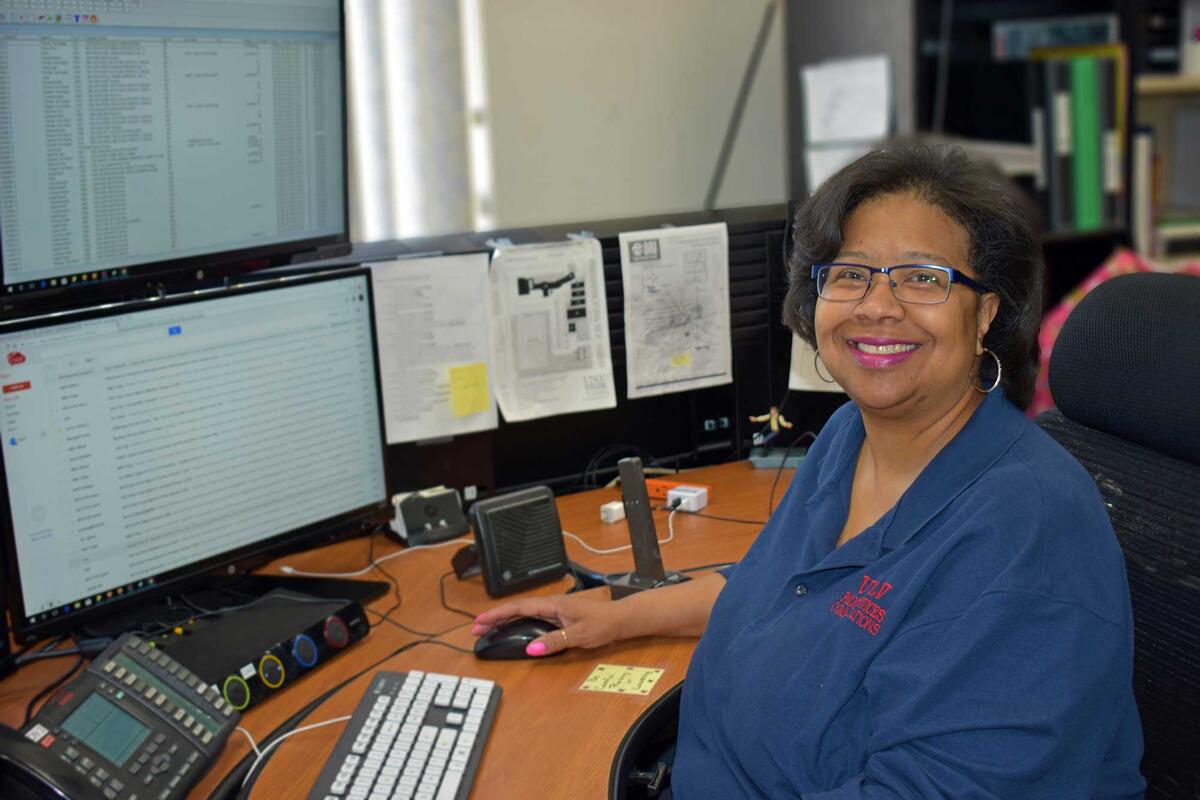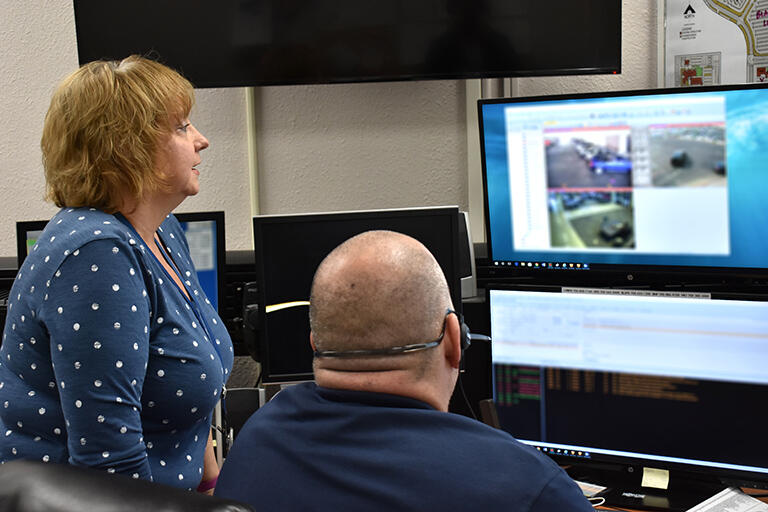
Communications & Dispatch
The Emergency Communications and Dispatch Section is the center of emergency communications for our department and campus. It is a state-of-the-art communications facility that operates 24 hours a day, 365 days a year. The University Police Communications and Dispatch Center provides the campus with:
- Police dispatch services
- Closed-circuit television camera monitoring (C.C.T.V.)
- 9-1-1/3-1-1 call intake
- Emergency call box monitoring
- Fire and burglary alarm monitoring
- Links to state and national criminal information databases
Our dispatchers receive thousands of phone calls per year for information, services, and complaints and are responsible for handling all responses to 9-1-1 calls. Most initial contacts with the public concerning a call for service are made by telephone. Our dispatchers:
- Have excellent communication and interpersonal skills
- Have the ability to prioritize several tasks
- Think clearly in stressful situations
Emergency Call Boxes
Communications personnel also monitor a system of emergency call boxes located throughout our campuses. The emergency telephones, identified by bright blue lights on top of the phones, provide immediate and direct access to the police communications center. These are hands-free telephones that, when activated (i.e., once the large red call button is pressed), automatically provide the dispatcher with the location of the telephone. When using a call box, briefly describe what you are reporting to the dispatcher and be prepared to answer questions.
Call boxes can be located at:
- CSN Charleston
- CSN Henderson
- CSN North Las Vegas
- NSC
- UNLV Maryland Parkway Campus
- UNLV Shadow Lane Campus

CCTV
Police communication dispatchers monitor a 24-hour closed-circuit camera surveillance system and a 24-hour alarm system that handles fire and security alarms. The unit also monitors alarms at the Desert Research Institute (D.R.I.) and has direct lines to the fire department and emergency medical services in the event of a fire alarm or medical emergency. All police surveillance cameras are overt in nature and clearly visible.
Campus 9-1-1/3-1-1 Services
If you call 9-1-1 or 3-1-1 from a campus phone, you will reach the University Police Communications & Dispatch Center. When calling from your cellphone, you have two options. You can download the free RebelSAFE App (on iTunes and the Google Play Store) and contact our police dispatchers, or you can dial the 10-digit emergency number, 702-895-3669. When calling:
- Keep in mind that 9-1-1 should only be used for extreme emergencies.
- The police dispatcher may keep you on the line while the emergency units are responding to ask additional questions or to obtain ongoing information.
- Let the dispatcher ask you questions. They have been trained to ask questions to help prioritize the incident, locate it, and speed the appropriate response. Your answers should be brief and responsive. Remain calm and speak clearly.
- Know where you are calling from and be prepared to describe the problem and indicate if it just happened or is still in progress.
- Save the 10-digit emergency number in your cellphone so you can reach the police on campus in an emergency.
- Should you dial 9-1-1 and cannot speak, start tapping on the phone. The dispatcher should then begin asking you "yes" or "no" questions to find out what help is needed.

Training
Our communications personnel are required by the state of Nevada to be certified in National Crime Information Center (N.C.I.C.) and Shared Computer Operation for Protection and Enforcement (S.C.O.P.E.) telecommunications. N.C.I.C. certification must be renewed every two years by attending an eight-hour in-service training class. Police communication dispatchers must also successfully complete a nationally recognized training course and 4 months of on-the-job training which covers all aspects of the position. The average experience of our police dispatchers is ten years.